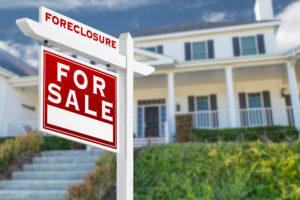Why Is Almost Half the Country Paying no Federal Income Tax?

One of the biggest tax debates that will likely always exist is whether or not the nation’s wealthy are paying enough in taxes? It’s easy for some to argue that they don’t but there are many factors that must be considered. Plus, all the while, nearly half of the country’s would-be taxpayers don’t actually pay any federal income tax at all. No, they aren’t guilty of tax fraud. These Americans are doing something that is perfectly legal and quite common.
In fact, would you be shocked to know that many of these individuals not only don’t pay any federal income tax, but they still receive a refund? According to the Tax Policy Center, it’s estimated that more than 45 percent of Americans owed no federal income taxes for 2015. According the Center, the number of total households that fall into this category has been increasing each year since 2011.
Some might think many of the wealthiest taxpayers are included among the more than 77 million people who fall into this category in 2015, but they don’t. About half of these households have no taxable income, period, and the other half qualify for enough tax breaks to help offset the amount they would owe. Therefore, these are individuals with a negative tax rate, not the nation’s highest earners.
The wealthiest 20 percent of the country, meanwhile, pays almost 87 percent of the nation’s entire federal tax bill. So, next time you hear someone claim that the wealthy don’t pay enough in taxes, just consider these numbers from the Tax Policy Center.
Top 10 Critical Mistakes Homebuyers Make and How to Avoid Them
[vc_row][vc_column][vc_column_text]1. Using an out-of-town lender. Getting a mortgage in a timely and hassle-free manner is the “key that opens the door” to your new home. Lenders who don’t live in the area you are buying in will not have the contacts needed to process your loan in an efficient and timely manner. Are you aware that…
Depreciation and Section 179 Expense Updates
Depreciation and Section 179 Expense Updates 2007 Changes Increased section 179 limits. The maximum section 179 deduction you can elect for qualified section 179 property placed in service in 2007 has increased to $125,000 ($160,000 for qualified enterprise zone and qualified renewal community property). This limit is reduced by the amount by which the cost of…
Options to Avoid Foreclosure
Options to Avoid Foreclosure By Alan Olsen, CPA, MBA (tax) Managing Partner Greenstein Rogoff Olsen & Co. LLP The divide between Republicans and Democrats on Capitol Hill appears to be spreading even wider after President Obama used his State of the Union Address to take dead aim at high net worth individuals. The president wants…
Sale of Residence – Real Estate Tax Tips
[vc_row][vc_column][vc_column_text] Sale of Residence – Real Estate Tax Tips You may qualify to exclude from your income all or part of any gain from the sale of your main home. Your main home is the one in which you live most of the time. Ownership and Use Tests To claim the exclusion, you must meet…


